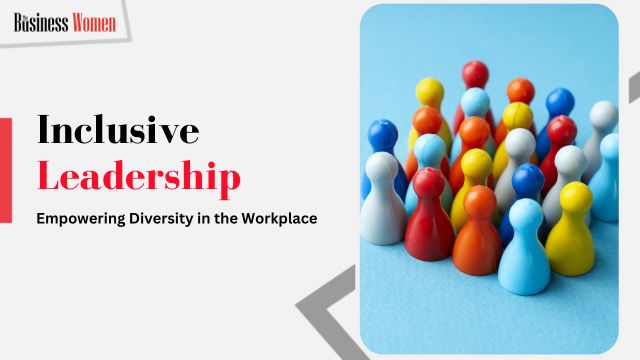In today’s rapidly evolving business landscape, inclusive leadership has emerged as a critical factor for success. Embracing diversity and empowering individuals from all backgrounds is not just a moral imperative but also a strategic advantage. Inclusive leaders create an environment where every employee feels valued, respected, and empowered to contribute their best. In this article, we explore the significance of inclusive leadership in empowering diversity in the workplace in India.
Understanding the Power of Diversity:
Inclusive leaders recognise that diversity goes beyond gender, race, and ethnicity. It encompasses different perspectives, experiences, and ways of thinking. Understanding the power of diversity, inclusive leaders actively seek out individuals with varied backgrounds to build dynamic and innovative teams.
Fostering Psychological Safety:
Psychological safety is the foundation of inclusive leadership. Inclusive leaders create a safe space where employees feel comfortable sharing their ideas, opinions, and concerns without fear of judgment or reprisal. This fosters open communication and trust within the organisation.
Embracing Unconscious Bias Training:
Unconscious biases can unintentionally influence decision-making. Inclusive leaders prioritise unconscious bias training for themselves and their teams. They work to raise awareness of biases and take steps to mitigate their impact on the workplace.
Providing Equal Opportunities:
Inclusive leaders ensure equal opportunities for career advancement and professional growth. They actively mentor and sponsor employees from diverse backgrounds, breaking down barriers and nurturing talent across the organisation.
Encouraging Employee Resource Groups:
Employee Resource Groups (ERGs) are valuable platforms for fostering diversity and inclusion. Inclusive leaders support and encourage ERGs, providing employees with the opportunity to connect, share experiences, and advocate for positive change.
Leveraging Inclusive Communication:
Effective communication is key to inclusive leadership. Inclusive leaders use language that is respectful and inclusive, avoiding jargon or expressions that might alienate certain groups. They actively listen to their team members and encourage diverse viewpoints.
Creating a Culture of Empathy:
Empathy is a hallmark of inclusive leadership. Leaders who demonstrate empathy understand the challenges and experiences of their employees, creating a supportive and compassionate work environment.
Valuing Work-Life Integration:
Inclusive leaders recognise the importance of work-life integration. They support flexible work arrangements, family-friendly policies, and wellness initiatives, promoting a healthy balance between work and personal life for all employees.
Setting Diversity and Inclusion Goals:
Inclusive leaders set measurable diversity and inclusion goals for their organisations. They monitor progress, hold themselves accountable, and celebrate achievements in creating a more inclusive workplace.
Leading by Example:
Above all, inclusive leaders lead by example. They model inclusive behaviour, treat everyone with respect, and champion diversity and inclusion initiatives. Their actions inspire others to embrace inclusivity and contribute to a positive workplace culture.
Conclusion
Inclusive leadership is a transformative approach that empowers diversity in the workplace. By understanding the power of diversity, fostering psychological safety, and embracing unconscious bias training, inclusive leaders create a welcoming and productive environment for all employees. Providing equal opportunities, encouraging ERGs, and leveraging inclusive communication further enhances diversity and inclusion. By prioritising empathy, work-life integration, and setting diversity and inclusion goals, inclusive leaders lead the way in creating diverse and inclusive workplaces in India. Through their actions and commitment to inclusivity, they pave the path for a brighter and more equitable future, where every individual can thrive and contribute their unique talents to organisational success.









